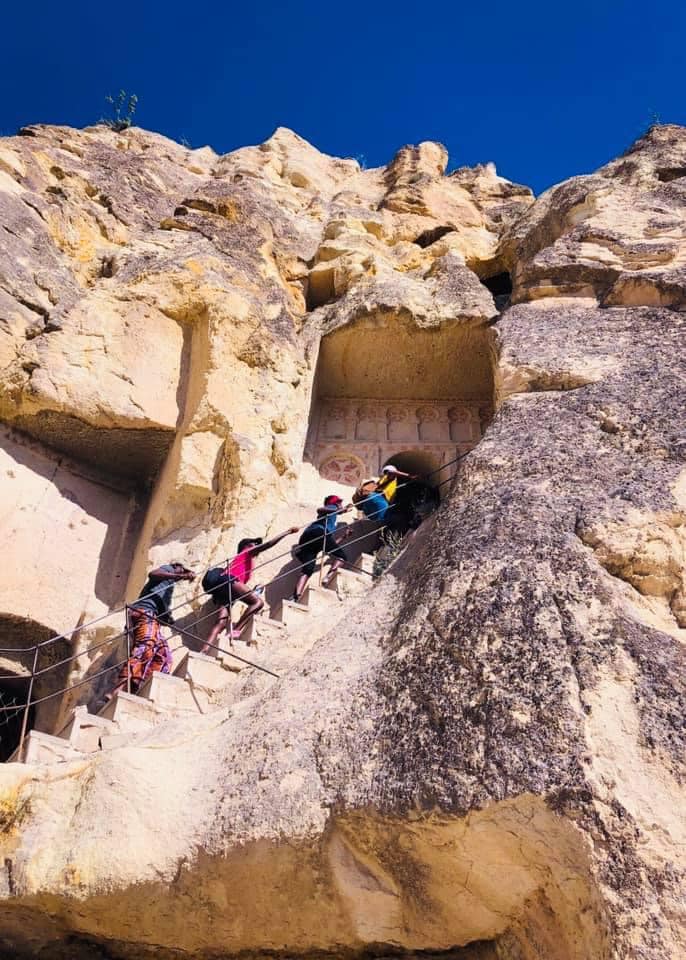On his deathbed on this day in 337 AD, Constantine the Great, the Roman Emperor, became the first Roman emperor to undergo the Christian ritual of Baptism.And of what significance is that, you ask?To answer that question, I would have to time tunnel to almost three centuries before then.It is June 18th, 64. Rome is up in flames. The fire destroys 10, out of 14 sections of the city. As the city burns, Nero, the blood-thirsty mad man who is also the Emperor is parched on one of seven hills of the city playing the lyre and singing songs about his wanton destruction. And why is that so? I’ll answer by asking another question. A relatable one. What do you do if you wield power and need to redevelop land under shack-grade property occupied by the down-trodden hoi-polloi living on the fringes of society? Simple. You set it on fire. (And blame someone for the arson.) We see that a lot in African cities today, don’t we?That’s exactly what Nero did. Only for him, he blamed the Christians. The gullible city dwellers rose up in anger against these followers of an itinerant preacher called Jesus. Persecution followed. 11 of the 12 disciples of Jesus all met violent deaths; Peter was crucified on a Roman cross. Feeling so underserving to die like his Master, he asked to be hang upside down. The 12th (John, the beloved – writer of the book of Revelations) was boiled in lava-hot oil but miraculously survived and was exiled to the island of Patmos. This persecution which was sparked off in 49 AD when Emperor Claudias expelled Christians from Rome was now in full throttle. It lasted until Constantine (a Christian convert in his youth) came to power in 313 AD and legalized Christianity. He made the persecution of Christians illegal by signing the Edict of Milan. He then went on to bankroll church-building projects and commissioned new copies of the Bible. In 325 AD, Christianity became the official religion of the Empire. Within 500 years, even temples of Greek gods were being turned into churches.Throughout these tumultuous centuries before Constantine’s edict, Christians in the Empire were literally forced out of their homes into the mission field. The gospel spread to the far corners of the world. By the way (as a footnote), the white man didn’t really bring Christianity to Africa. Africa knew Christ well before the European missionaries – Ludwig Krapf, Pierre Lourdel et al only made their way to our pristine shores in the last half of the nineteenth century. The early church fathers – Tertullian, Origen, Cyprian, Athanaius, Estifanos and Augustine were all Africans.On the other end of the world – the caves of Cappadocia (in Modern day Turkey, pictured here) provided refuge for Christians fleeing persecution from agents of the empire (like Saul, turned Paul) and marauding bands of Arabs from no particular origin. There are dozens of oikos-sized churches littered across the landscape; one has a near replica of the Last Supper dining table. Christians gave the main town, Göreme, its name. It’s literal translation is, “You cannot see here.”Christianity was never meant to be easy. With a few notable exceptions like the Ethiopian Eunuch and the Queen of Sheba, Christianity was spread by the blood of the martyrs. But for Nero, Jesus’ followers were content to settle in Jerusalem. But if you are being fed to the lions as entertainment, and your lot was routinely being used as giant candles for outdoor parties, perhaps you would really have to count the cost of following this Jesus. Peter, Paul and the rest did.Perhaps a little persecution for today’s universal church wouldn’t do us terribly bad. Perhaps if Christianity was less hip and trendy, just perhaps, all this hunky punky monkey business that the church is much ado about today would not be? Perhaps we would be more impactful, and the salt and light we were called to be.PS. Constantine’s crowning achievement was his dedication of Constantinople as his new imperial capital in 330. In 1930, it was officially renamed Istanbul and to ensure that people use the new name, the Turkish post office stopped delivering any mail addressed to Constantinople.

June 28, 2022 at 6:36 pm
My educator, Jacob Zikusooka .? Notably, Christianity wasn’t easy, yet it continues to grow! Africans knew Christ before the coming of Europeans.
Wondering how those caves were made in such a rock!
June 28, 2022 at 6:38 pm
Joe Paul, from visitors “discovering” and naming the lakes and rivers in our backyards to these widely accepted untruths, the history taught in our schools needs to be rewritten!
June 28, 2022 at 6:38 pm
Asante! How else would some of us ever get to know this deep history!
June 28, 2022 at 6:38 pm
To be continued when?